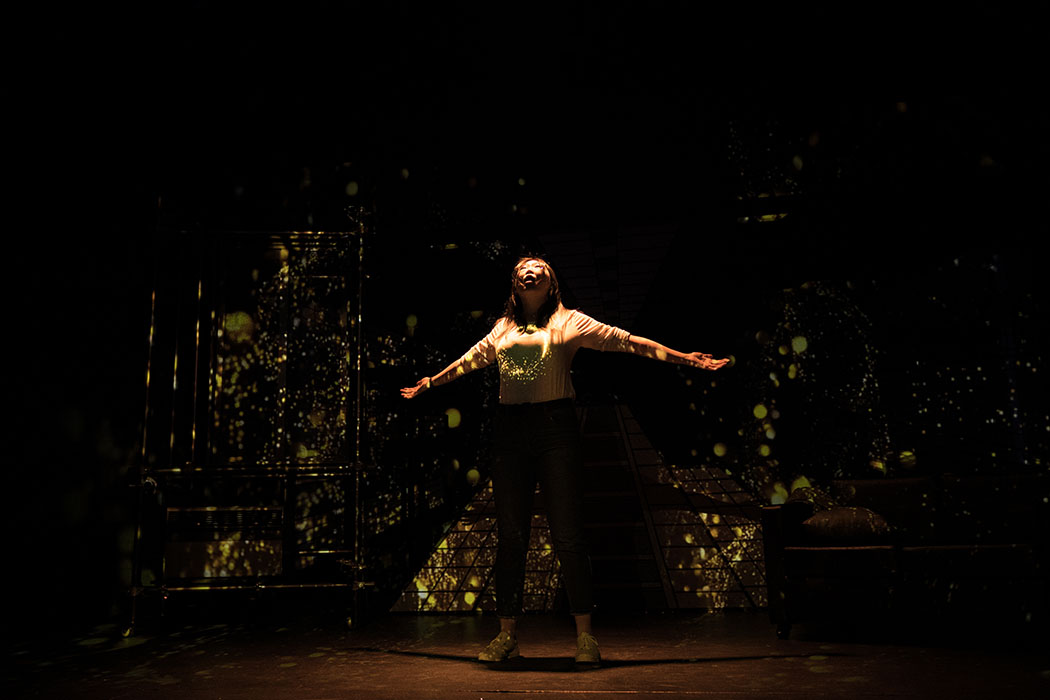Adaptive Radiation — a process in evolutionary biology in which organisms diversify from an ancestral species into a range of new forms, brought about by a change in the environment that makes new and different resources available, or opens new environmental niches.
Every generation, it seems, goes through a period in which they see the circumstances of their existence as somehow remarkable, and that their evolution as human beings is unique and historic. If that were really the case, those not of the millennial persuasion would have little use for Hannah Benitez’s 2018 comedy, Adaptive Radiation, which opened last week at Clarence Brown Theatre’s Lab Theatre. Instead, most adults of any generation may find the play holds a mirror before them, daring them to deal with the reflection, or, at least, laugh knowingly with others at the sight. In the case of Adaptive Radiation, that mirror is often of the funhouse variety where reality is warped and dull familiarity is challenged.
Benitez has constructed her play around four twenty-somethings who are faced—whether they know it or not—with existential questions about what gives their lives meaning. Mel (Sarah Wahrmund) and Olivia (Jasmine R. Handy) are roommates, both tied to dead-end internship jobs. Each are beginning to question the rut of their lives in different ways. Circular connections are formed with Steve (Greg Jordan) and a bicycle accident, and medical student Robert (Chris Verrier). At risk of divulging too much and ruining Benitez’ plot magic, there is a fifth character (Cameron Skillen). After setting up the relationships and connections brought about by a mysterious “entity,” the play charmingly careens off the edge of reality into a marvelously whimsical sort of chaos where the audience is asked to read between the lines in a wink-wink-nudge-nudge process and place what they see in the context of the characters’ journey to self-discovery.

Directed with copious amounts of energy, wit, and stagecraft by Terry D. Alford, the five actors make stunningly impressive work of Benitez’ twists and turns, skillfully managing not just the mechanics of the complex roles, but also the beauty of boldly faceted characters. Michaela Lochen’s set of forced perspective pieces and rolling racks of props was inventive and clever. Lighting designer Mitch Wilson provided the keyed ambiance that allowed Alex Heder’s tricked-out contemporary clothing to pop. Sound effects, both obvious and ambient, were nicely conceived by Lucas Swinehart. Kaylin Gess’ projections provided not just the nuts and bolts for the whimsical plot, but also special moments.
A word of warning—you’ll want to be sharp and alert when you attend Adaptive Radiation. One joy of this production is that there is a boatload of subtle drama and humor, both in dialog and in action. Don’t blink—you won’t want to miss a thing in this skillfully constructed production.








